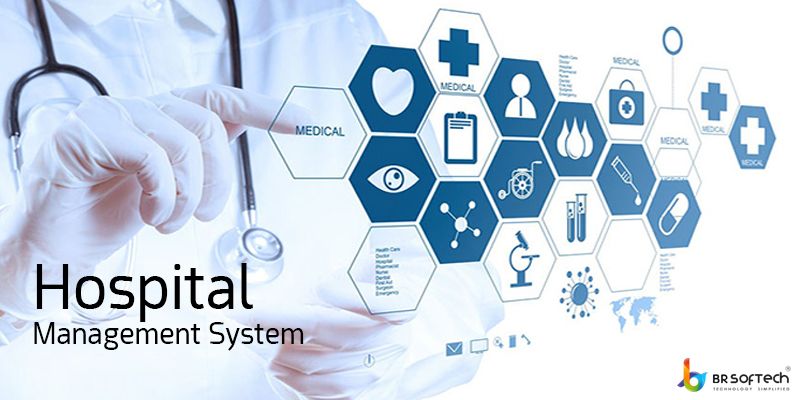
A Guide to Hospital Management Software: Features, Functions and Benefits
So you run a hospital and you're wondering how you can streamline operations, reduce costs, and improve patient care. The answer is simple: invest in hospital management software. These powerful systems are designed specifically for healthcare organizations like yours to help automate and optimize various administrative and clinical functions. With the right and best hospital management software, you'll have an integrated platform to manage everything from patient records and billing to staff scheduling and inventory control.
What Is Hospital Management Software?
Top Hospital management software helps hospitals and medical practices streamline administrative and operational processes. This specialized software automates and simplifies everything from patient records and billing to staff management and inventory control.
Key Features
Hospital management software typically includes:
-
Electronic health records (EHRs) to digitally store and manage patient medical records and history. EHRs make it easy for authorized staff to access and update patient records from anywhere.
-
Practice management tools for scheduling appointments, billing, and accounting. This includes billing patients and insurance companies, generating reports, and managing revenue cycles.
-
Pharmacy and inventory management to order, stock, and distribute medical supplies and medication. The software tracks inventory levels in real time and can automatically reorder supplies when stock is low.
-
Staff and human resources management for hiring, payroll, timekeeping, and compliance. The software stores employee records, schedules shifts, processes payroll, and ensures proper credentialing and training.
-
Reporting and analytics to generate reports on key performance indicators like patient volumes, revenue, costs, and productivity. Hospital administrators and managers can use these insights to track performance and make data-driven decisions.
Benefits
-
Improved efficiency. Automated processes and a centralized database save time and reduce errors.
-
Better patient care. EHRs and practice management tools give caregivers a more complete view of patient medical history and needs.
-
Cost savings. Automation, digitization, and analytics help curb excess spending and optimize resource utilization.
-
Compliance. Specialized software ensures compliance with healthcare regulations like HIPAA for data security and privacy.
-
Scalability. As practices grow, hospital management software scales to meet increasing patient volumes and complexity while continuing to streamline operations.
Key Features of Hospital Management Systems
A good hospital management system Software comes with several key features to help streamline operations.
-
Patient records management
At the heart of any HMS is a patient records database. This stores patient demographics, medical history, diagnoses, medications, allergies, and treatment plans. With a robust records management system, staff can easily access up-to-date patient data to provide the best care.
-
Scheduling and appointments
A capable HMS includes a scheduling module to book patient appointments, manage resources like exam rooms and equipment, and optimize staff timetables. Appointment reminders can be sent via email, text, or phone to reduce no-shows.
-
Billing and accounting
For any healthcare organization, managing the finances is crucial. A solid HMS has built-in accounting tools to handle patient billing, insurance claims, payment processing, and revenue reporting. This helps ensure accurate charging and that no reimbursements are missed.
-
Reporting and analytics
To improve hospital operations, an HMS provides reporting and analytics on key performance indicators like patient volumes, staff productivity, revenue, and more. Administrators can track trends over time and compare to industry benchmarks to make better strategic decisions.
-
Inventory management
Keeping tabs on medical supplies and pharmaceuticals is essential. A capable HMS has inventory management to log stock levels, record items used, and generate purchase orders to avoid stockouts and ensure critical resources are available when needed.
With the right features and functionality, a hospital management system can help increase efficiency, cut costs, and improve the quality of care. For any healthcare organization, an HMS is vital to smooth day-to-day operations as well as long-term success.
Top Functions of Hospital Management Software
Hospital management software coordinates and controls various operations within a hospital or health system. The core functions provide transparency, efficiency, and improved patient care.
-
Patient Records Management
This software securely stores and organizes patient medical records, test results, treatment plans, and billing information. Authorized staff can quickly access comprehensive patient data to provide the best care. Patient portals also give patients access to their own health records and the ability to schedule appointments or message their doctors.
-
Billing and Accounting
The system handles patient billing, insurance claims, and hospital accounting. It can verify patient insurance, track copays and deductibles, and generate accurate bills. For the hospital, it manages payroll, budgets, expenses, and revenue. Reporting and analytics tools provide insights into costs, productivity, and areas for improvement.
-
Scheduling and Resource Management
The software automates the scheduling of operating rooms, patient appointments, staff shifts, and critical equipment. It ensures optimal usage of resources and prevents double-booking. Staff can easily make changes or find replacements when needed. Patients benefit from shorter wait times and a smooth experience.
-
Inventory and Supply Chain Management
It monitors medical supply inventory across the hospital and can automatically reorder supplies when stock runs low. This reduces waste, ensures supplies are always available when needed, and may provide cost savings. The system also tracks the location and usage of medical equipment, including maintenance records.
Hospital management software aims to reduce inefficiencies, improve quality of care, increase patient satisfaction, and lower costs. For staff, it makes their jobs easier through streamlined processes and readily available information. Overall, it helps hospitals and health systems operate in a systematic, coordinated fashion.
Major Benefits of Using Hospital Management Software
Major Benefits of Using Hospital Management Software
Hospital management software provides many useful benefits to healthcare organizations. Here are some of the top reasons to consider using this type of software:
-
Cost Savings
Hospital management systems Software can help reduce costs in many areas of hospital operations. By automating manual processes, staff time and resources are optimized. Billing and accounting functions are streamlined, reducing errors and lowering staff workload. Inventory control ensures you have enough supplies on hand without overstocking.
-
Improved Patient Care
With integrated electronic health records (EHRs), patient data is centralized and accessible to authorized staff. This results in higher quality care as physicians have a more complete medical history to reference. It also reduces redundant tests and procedures. Appointment scheduling is optimized, decreasing wait times for patients.
-
Increased Productivity
By eliminating time-consuming paper records and manual processes, staff can focus on more important tasks. Doctors and nurses spend less time on administration and more time with patients. Billing and accounting staff process payments and claims more efficiently.
-
Better Reporting and Data Analysis
With a centralized database, hospitals gain valuable insights through customized reports and analytics. Administrators can easily track key performance indicators like patient volume, staff productivity, revenue, costs, and more. This data-driven approach helps with strategic planning, budgeting, and decision making.
-
Regulatory Compliance
Hospital management software incorporates tools and protocols to help organizations meet industry compliance standards. It provides secure user access control, audit trails, and storage of sensitive patient data in accordance with HIPAA and other regulations. Staff are prompted with alerts and reminders about mandatory procedures.
In summary, hospital management software greatly improves operations through automation, integration, and data analysis. The benefits of cost savings, enhanced patient care, increased productivity, robust reporting, and regulatory compliance provide a compelling case for implementing this solution.
How to Choose the Right Hospital Management System
Choosing the right hospital management system for your facility is an important decision. There are several factors to consider to find the best solution for your needs.
-
Functionality
Look for a system that can handle the key functions of hospital administration like patient records, billing, inventory, and staff management. The core modules should cover admissions, discharges, transfers, as well as patient demographics and insurance information. It should have robust reporting and data analysis features to gain insights into hospital operations and performance.
-
Scalability
Consider a system that can scale with your organization as it grows. It should be able to handle increasing numbers of patients, staff, departments, and locations. The ideal system is flexible enough to adapt to changes in processes and workflows over time.
-
Implementation and Training
Look for a system with a straightforward setup and implementation process. It should come with training programs to get your staff up to speed quickly. Ongoing support and education resources are also important to help new employees learn the system and keep all staff up to date with new features.
-
Cost
Hospital management systems software vary widely in cost depending on the size and complexity of your organization. Look for a system that fits your current budget but also offers pricing models that will suit your needs as you expand. Consider both the upfront licensing fees as well as ongoing costs like maintenance, support, and upgrades.
-
Vendor Support
Choose a system from a reputable vendor that provides good customer service and support. Look for a vendor that releases regular software updates to continuously improve the system, and helps customers stay up to date with the latest versions. responsive to feedback and requests for new features or customizations.
With many options available, evaluating your needs and priorities will help you find a hospital management system tailored to your organization. Take your time to assess different systems and vendors to choose the right solution for your facility.
Conclusion
So there you have it, a deep dive into what hospital management software can do for your healthcare organization. From streamlining admissions and discharges to optimizing revenue cycle management, this powerful tool has so much to offer. While the options and capabilities may seem overwhelming at first, focusing on your key priorities and needs is the best place to start. Identify what will make the biggest impact, whether it’s reducing wait times, decreasing denied claims or improving patient satisfaction scores. With the right system in place, tailored to your specific goals, you’ll gain valuable insights, increase efficiency and provide higher quality care. The future of healthcare is digital, so now is the time to make the investment in a solution that will take your hospital to the next level. The benefits to both your bottom line and your patients will be well worth it.
Latest Blog
- Choosing the Right Medical Management Software for Your Healthcare Practice
- Bring Smart Software Solutions to Your Healthcare and Elevate It
- Harnessing the Power of Healthcare Management Software in India: Enhancing Efficiency and Effectiveness
- A Guide to Hospital Management Software: Features, Functions and Benefits
- A Complete OPD Software for Hospital & Clinic Management
- Buy Cloud-Based Dental Management Software
- What Are the Key Features of Lab Management Software?
- Queue Management Software Reduces Your Queue Times
- Dental Software A Perfect Solution For Clinical Efficiency
- Queue Management Software To Handle Long Queues In Hospitals
- Why You Must Use Laboratory Management Software
- How Does Hospital Grow With Medical Practice Management Software
- Buy The Best Optometry Software To Automate Clinical Practices
- HMS Software Streamlines Your Hospital Operations With EHR System
- Advantages Of Using IPD-OPD Software For Hospital/Clinic
- IVR Services: A Live Phone Answering Satisfy Your Patients
- Pathology Software Reduces Error And Improve Lab Productivity
- Pharmacy Management Software Services and Features
- Why Does Every Hospital Need A Hospital Management Software
- Queue Management Software: An Ultimate Solution Digitally Manage Queues



